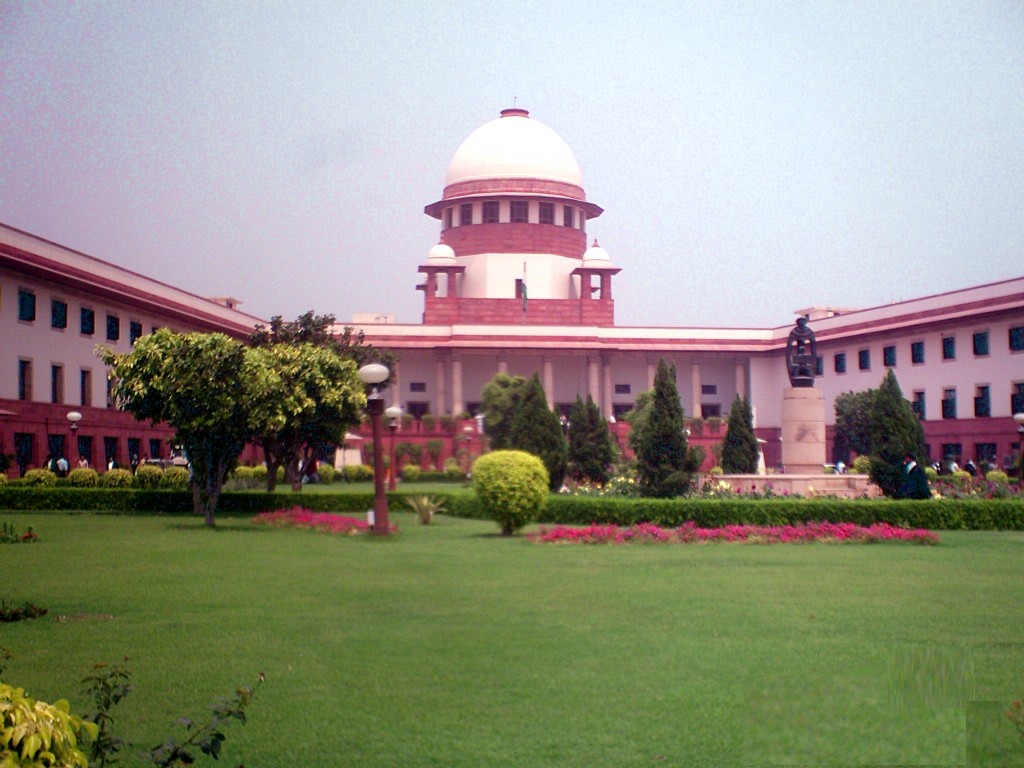Union Government says they agree in principle regarding recognition of transgender persons in law
Delhi: In a case that has the potential to break the binary gender norms of male and female in law and administrative practices in India, the Supreme Court on 29thOctober, 2013 reserved its judgment on the question of recognition of identity of transgender persons in India. The Division Bench of Justice K. S. Radhakrishnan and Justice A.K. Sikri was hearing a public interest litigation,National Legal Services Authority(NALSA)v. Union of India & Ors. [Writ Petition (Civil) No. 400 of 2012] filed in October, 2012. The petition sought several directions from the Court, including granting of equal rights and protection to transgender persons; inclusion of a third category in recording one’s sex/gender in identity documents like the election card, passport, driving license and ration card; and for admission in educational institutions, hospitals, access to toilets, amongst others.
Senior Advocate and Director, Lawyers Collective, Mr. Anand Grover appeared on behalf of Laxmi Narayan Tripathy, a famous hijra activist, and an intervener in the matter. Addressing the Bench on the questions raised in the Petition, Mr. Grover pointed out that gender is now understood as a continuum or a range, which is not restricted to the binary of male and female gender alone and which may be different from a person’s biological sex. A person may identify in the gender, which does not correspond with the sex assigned at birth. For example, a person, who is assigned female sex at birth, may identify as a male or may identify as a transgender, that is, other than male or female.
Mr. Grover argued that a person’s sense or experience of gender is integral to their core personality and their sense of being. Everyone has a right to be recognised in their chosen gender. This right lies at the heart of personal autonomy and freedom of persons. He further argued that recognition of gender identity should not be dependent on medical requirements, that is, one should not be required to undergo any medical procedure like hormonal therapy or sex reassignment surgery (SRS), in order to get legal recognition. At the same time, if one wishes to undergo any medical procedure, one should have access to free and quality health services, including SRS in public hospitals.
Reading Articles 14 and 15 (equality and non-discrimination), 19 (fundamental freedoms) and 21 (right to life) together, Mr. Grover submitted that the State has a duty to recognise the self-identified gender of all persons and should take necessary legal and administrative steps to accord such recognition in all identity documents, whether issued by the State or private entities and which indicate a person’s sex/gender, including birth certificates, educational certificate, passport, ration card and driving license. He further argued that the Constitution itself had recognised gender, which was included in the term ‘sex’ used in Article 15. He thus noted that the constitutional guarantee of equality applies to all and no one can be discriminated by the State on the ground of ‘gender identity’ under Article 15.
Mr. Grover asserted that there can be no justification for the State not recognising gender identities, other than male and female, especially when India has a rich tradition of persons who identify as the third gender. He traced the history of third gender identity to ancient religious and other texts and referred to the prominent role of theHijracommunity in the royal courts of the Mughal rulers. However, the British criminalised the entire class ofhijrasin the 19thcentury, by categorizing them as a ‘criminal tribe’ and denuding them of their civil rights. The impact of criminalisation is still felt in many local laws even today, for instance, Section 36A was introduced in 2012 in theKarnataka Police Act, 1964, which provides for “registration and surveillance of Hijras who indulged in kidnapping of children, unnatural offences and offences of this nature.”
The Union of India, through the Ministry of Social Justice and Empowerment (MOSJE), submitted they were in principle in agreement with the submissions pertaining to the recognition of transgender persons in law and that they have set up an expert committee on the issues relating to transgender persons and would take into account all the concerns raised by the Petitioner and the Interveners.
The Bench gave two weeks of time to the parties to file their written submissions and reserved the judgment.
(Report by Amritananda Chakravorty of the Lawyers Collective)
- Submissions Open for Rainbow Awards for Literature & Journalism 2025 - June 6, 2025
- Daniel Craig’s “Queer” and Elliot Page’s “Close To You” to bookend Mumbai’s iconic LGBTQ+ film festival KASHISH 2025 - May 25, 2025
- Film Kuch Sapney Apne Celebrates Diversity and Family Acceptance, and Stars Parents and LGBTQ+ Members in Cast - February 25, 2025


